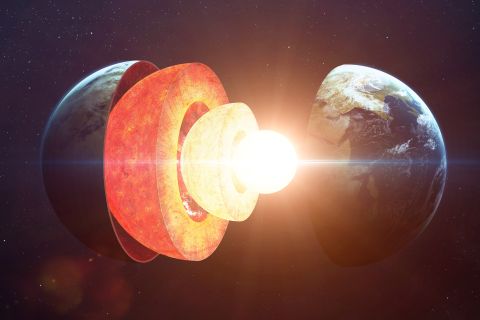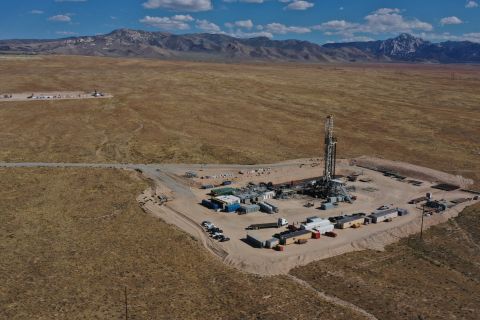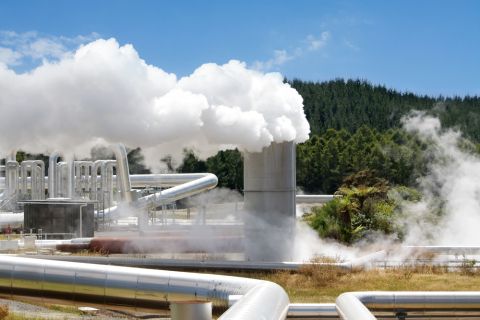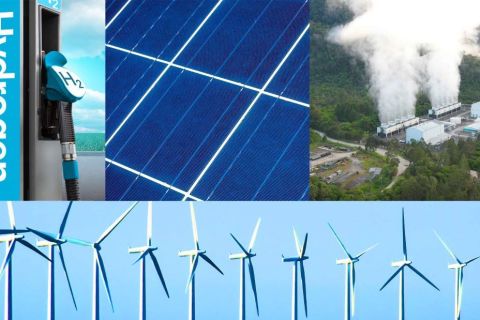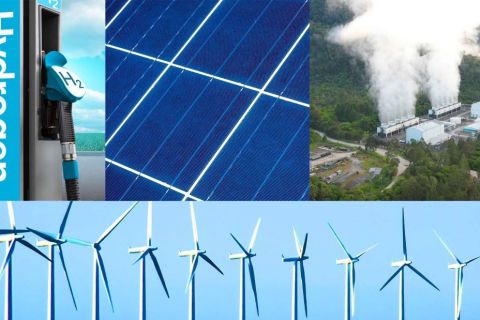Jordan Blum, editorial director, Hart Energy: One of the biggest deal makers in oil and gas is trying to make itself more vital to the industry and to the world. This is your OGInterview with Jason Pigott, the CEO and president of Vital Energy. So you just announced three deals for nearly $1.2 billion to dramatically expand in the Permian. Just to do a quick rehash, it's Henry Energy, Tall City, Maple Energy. How did all of this come to fruition so fast or seemingly so fast from my perspective?
Jason Pigott, president and CEO, Vital Energy: Gosh, some of it was two years in the making, and so we did two other acquisitions this year for a total of five for about $1.9 billion. But two of those earlier transactions really set us up for the ones that we announced here recently. We did a Driftwood transaction in the southern Midland Basin, and then we did the Forge acquisition in the southern Delaware Basin. And two of the deals just came up from just meeting people and having relationships. The Maple was the $200 million deal. It was too small for us to jump all the way to the southern Delaware Basin by itself.
When I looked at the map around Driftwood, I was like, who are these Henry guys around us? And so we were looking at the map and I went and met one of the team members over there and just said, ‘hey, we're looking to grow, we're looking to build. If you're ever looking to exit, we'd be interested in that.’ And gosh, they called back four months later and said, ‘hey, we really thought about it and we want to partner with you and we want you to be successful, we want to take a big equity position as part of the transaction.’ So we had two that were kind of working again via relationships, and then Tall City was a marketed process. And so we looked at that and like, hey, let's go for it. And then it's like we got to sign a PSA really quick and we could announce it with these other two deals. So again, it all just came together at fortuitous timing, and we're really pumped about it.
JB: Great, fantastic. A whole lot of looking at maps, seeing who owns what, trying to figure out how to get this contiguous acreage altogether.
JP: Yes, we need to grow and create scale, but let's look at the maps and think of the what ifs. If I looked at the southern Delaware Basin, there were four or five things. We didn't have to get them all, but if we could get two or three, then we could put together a material position there. Same thing in the southern Midland Basin. Start to look at the open spaces on the map that don’t have the big positions by your Diamondbacks or Endeavors and things like that. So just starting to really think strategically about how could I string a few things together and with a little luck, you've got a big position. We were just really successful with it, so we're excited.
JB: Very good. So Tall City and Maple are all Delaware. A lot of Henry's is in the southern Delaware too, but Henry has a little bit of that Midland too, and Driftwood was Midland. So how are you kind of balancing that focus?
JP: Yeah, I think phase one of this was really just trying to keep the Henry activity, how they had it. I mean, it takes six to nine months to really get your rig schedule set. So I think that's where the opportunity is for us in the future, is to start thinking through how do we optimize the Delaware Basin because it is a pretty contiguous position. Those wells take longer to drill. So at the end of the day, you want to optimize your frac crews and not so much rigs. And so how do we spend time with this frac crew between Delaware and the Midland Basins? I think that's where there's a lot of synergies and upside for us in the future, but we kept it status quo for the evaluation and what we've rolled out so far.
JB: So keep that Permian focus, obviously, but growing in both lobes, so to speak.
JP: Yeah, ultimately we've been acquiring companies and kind of building scale through the acquisitions and keeping production flat. We don't ever have to worry about takeaway constraints and things like that if you're kind of maintaining what a company has. So we will find balance but expect Delaware to grow over time, but again, that's the optimization work that will occur in the future.
JB: Very good. So obviously earlier this year too, you had the Forge Energy deal with Northern Oil & Gas. Do you see that as potentially a trend of having kind of a non-op partner to help finance things?
JP: A lot of it's going to be deals specific. So when we were looking at Forge, we knew it was going to take a cash offer to win that bid. We had a good relationship with the NOG guys from selling them some non-op properties that we had with SM earlier in the year. So we knew that we thought alike, which is the hardest thing when you're trying to have two companies turn in a bid together and have them be the same number, that's one of the most difficult things. And so we have that relationship, our numbers lined up, so that was a way to bring more cash to the table. On these three most recent transactions, we didn't do that. We were able to issue equity instead of bringing in a partner. So you just have to adapt and move to what the environment is like at the time.
JB: Great. So obviously you talked about five acquisitions this year. That's super busy, but of course, Vital Energy is a new name that people are learning. Just in January, you completed the rebranding from Laredo Petroleum. So can you just take me through that overall transformation?
JP: Yeah, that's a great question. We are starting to build something new, and we're ultimately going to be a new company at the end of the day and we really wanted a name to reflect it. But we actually started with our culture. What is the culture that we want to put in place? Who do we want to be? What are our behaviors? And we went through that process and our theme is to energize human potential. And so that's what we're all about, is providing energy, whether it's to people to fuel their houses or our team members to get them empowered to do things like that. It really resonated with the teams. Then we started going through names and a name had to not be made up words. It had to be a real thing. Some of the names that came out, one was Vital Energy, and it just really resonated with these other things that we were doing, that what we do is vital to the world, but it also is aligned with our strategy to grow bigger. We're not going to be vital to the world if we are small, so let's do something that makes our company more relevant, which is building scale. Then we can really energize human potential.
JB: To read more, please visit online at hartenergy.com.
Recommended Reading
US Geothermal Sector Gears Up for Commercial Liftoff
2024-04-17 - Experts from the U.S. Department of Energy discuss geothermal energy’s potential following the release of the liftoff report.
Oil, Gas Drilling Tech Transfer Boosts Fervo’s Geothermal Prowess
2024-02-14 - Geothermal company Fervo Energy is learning from oil and gas drilling and completion techniques to improve geothermal well costs and drill times.
Quaise Energy Raises $21MM Toward Deep Geothermal Operations
2024-03-12 - Quaise Energy will utilize a technique to vaporize rock using high-power microwaves to achieve deep geothermal energy globally.
Energy Transition in Motion (Week of March 1, 2024)
2024-03-01 - Here is a look at some of this week’s renewable energy news, including Chevron’s plans for a solar-to-hydrogen facility in California.
Energy Transition in Motion (Week of Feb. 16, 2024)
2024-02-16 - Here is a look at some of this week’s renewable energy news, including the outlook for solar and battery storage in the U.S.

